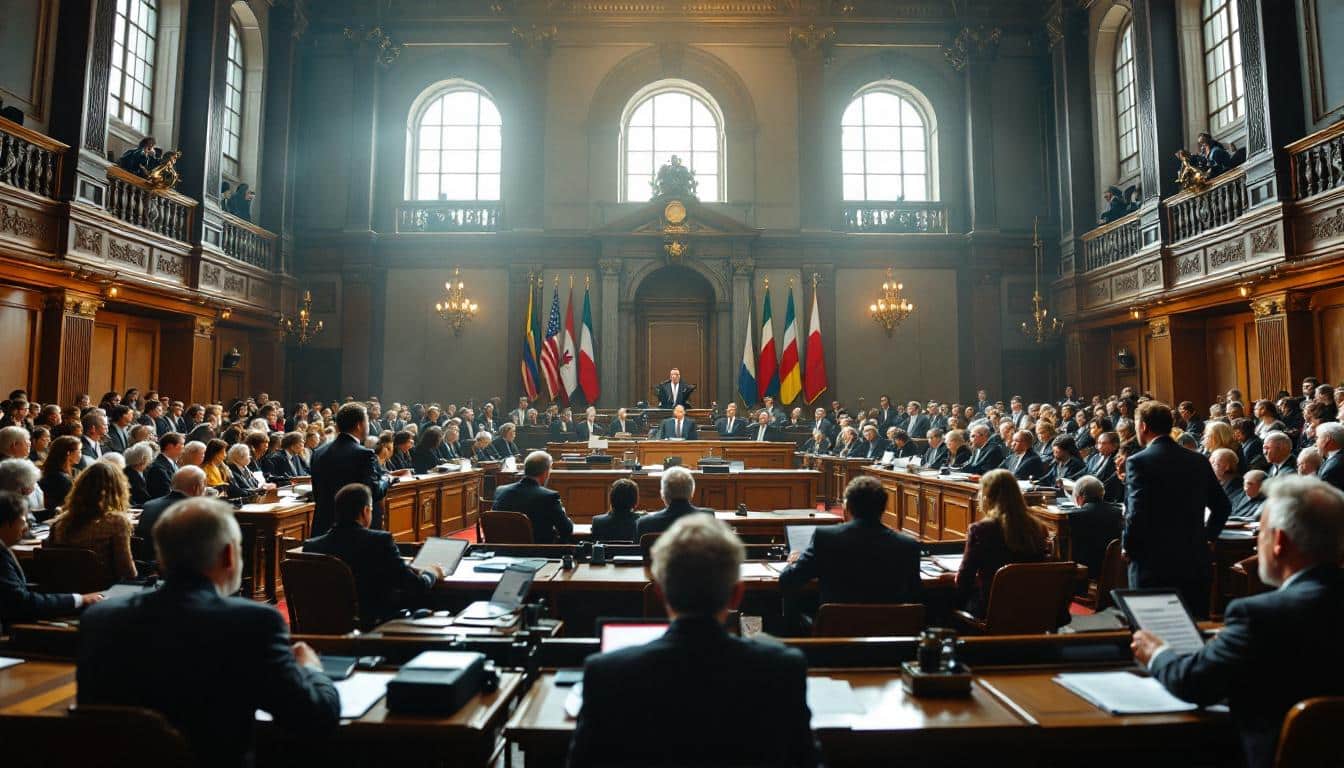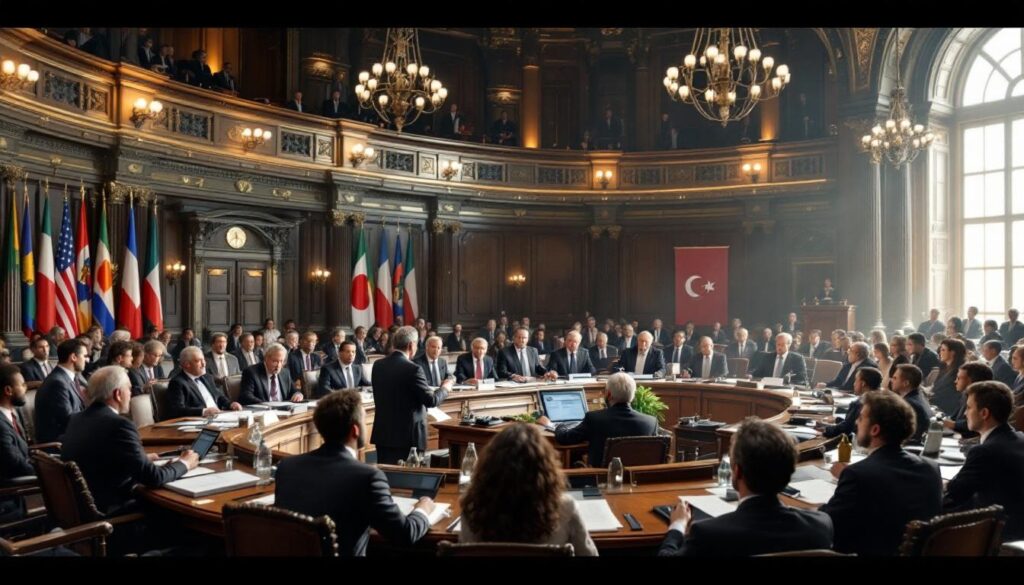Cookies and data play an essential role in our online experience.
They enable the delivery and maintenance of the services we use on a daily basis.
Without them, browsing would be much less smooth and personalized.
The data collected is used to track failures and protect against spam, thus ensuring user security. It also serves to measure audience engagement and site statistics, in order to understand the use of services and improve their quality. By choosing to accept all cookies, you enable the development and improvement of new services, as well as the dissemination and measurement of the effectiveness of advertisements. Furthermore, personalized content and ads adjust according to your preferences and browsing history.

The parliament recently approved the WTO agreement concerning subsidies in the fishing sector, marking a significant step for the maritime industry. This decision comes after long negotiations aimed at regulating financial aid granted to fishermen and businesses in the sector. The main objective of this agreement is to promote sustainable fishing practices while ensuring the competitiveness of economic actors.
Table of Contents
ToggleWhat are the main provisions of the WTO agreement on fishing subsidies?
The WTO agreement introduces several key measures aimed at regulating financial subsidies in the field of fishing. Firstly, it defines the types of subsidies considered prohibited, notably those that contribute significantly to overfishing or the degradation of marine ecosystems. In addition, the agreement establishes a clear framework for permitted subsidies, encouraging those that foster the modernization of equipment, research and development, as well as conservation initiatives.
Furthermore, the agreement sets up mechanisms for monitoring and transparency to ensure that subsidies are used effectively and in accordance with established objectives. This includes the establishment of regular reports and independent evaluations to measure the impact of subsidies on the marine environment and the fishing economy.
What are the expected impacts of this agreement on the fishing sector?
The approval of the WTO agreement is expected to have significant repercussions on the fishing sector. On one hand, regulating prohibited subsidies should help reduce overfishing and protect marine resources, thus ensuring the sustainability of fish stocks. On the other hand, permitted subsidies, oriented towards innovation and sustainability, will allow businesses to modernize their practices and adopt more environmentally friendly technologies.
This balanced approach also aims to strengthen the competitiveness of economic actors in fishing on the global market. By eliminating unjustified financial aid, the sector will be better positioned to meet international challenges and the growing demands for sustainability.
How could this agreement influence national fishing policies?
The WTO agreement on fishing subsidies is likely to significantly influence national policies. Governments will need to align their subsidy policies with the new international guidelines, which could result in a revision of the current aids granted to the sector. This could include the elimination or reallocation of certain subsidies towards more sustainable and innovative initiatives.
Moreover, WTO member nations will be encouraged to develop national strategies aimed at promoting responsible fishing and protecting marine ecosystems. This could translate into increased investments in scientific research, training fishermen in sustainable practices, and supporting marine conservation projects.
What are the reactions of stakeholders to the approval of the agreement?
The reactions of stakeholders to the approval of the WTO agreement are diverse and reflect the varied interests of different actors in the fishing sector. Environmental organizations have generally welcomed this decision, viewing it as a major advancement for ocean protection and combating overfishing.
On their part, fishermen and industry businesses express mixed opinions. Some welcome the clarity and transparency offered by the agreement, as well as the modernization opportunities it brings. Others, however, fear that reducing prohibited subsidies could affect their profitability and their ability to remain competitive in the international market.
Meanwhile, governments are attentive to the balance between environmental protection and economic support for the fishing sector. They seek to implement policies that meet the demands of the WTO while supporting local communities dependent on fishing activities.
What challenges need to be addressed for the implementation of this agreement?
Implementing the WTO agreement on fishing subsidies presents several challenges. One of the main obstacles is the adaptation of national policies to this new international framework. Governments must develop effective strategies for redistributing or eliminating existing subsidies without causing major economic disruptions in the fishing sector.
Another challenge lies in vigilance and monitoring the use of permitted subsidies. It is crucial to ensure that these aids are indeed used to promote sustainability and innovation, and not diverted for purposes inconsistent with the goals of the agreement. This requires rigorous oversight and strong control mechanisms.
Finally, international cooperation is essential to overcome the differences in capacities and resources among WTO member countries. Less developed nations may need additional support to comply with new regulations and to invest in sustainable fishing technologies.
What are the long-term benefits of this agreement for the marine environment?
The WTO agreement offers promising prospects for the protection of marine environments in the long term. By reducing subsidies that encourage overfishing and ecosystem degradation, the agreement contributes to the rehabilitation of fish stocks and the restoration of damaged marine habitats. This promotes not only marine biodiversity but also the resilience of ecosystems in the face of climate change.
Moreover, by supporting subsidies focused on innovation and sustainability, the agreement stimulates the development of responsible fishing practices. This includes the adoption of more efficient technologies, the establishment of sustainable fishery management systems, and the funding of marine ecology research projects.
In the long term, these measures should lead to a more sustainable seafood industry, ensuring that marine resources remain abundant and accessible for future generations. They will also contribute to strengthening global food security by ensuring stable and sustainable fish production.
How does this agreement fit into global marine conservation efforts?
The WTO agreement is part of a series of global efforts aimed at preserving marine ecosystems and promoting responsible management of ocean resources. It complements other international initiatives, such as the United Nations Sustainable Development Goals, particularly goal 14 which concerns life below water.
By harmonizing subsidy policies with international sustainability standards, the agreement helps create a coherent and integrated approach to fishery management on a global scale. It also facilitates cooperation among countries in marine conservation, allowing for the sharing of best practices and mutual support in implementing protection policies.
Furthermore, the WTO agreement encourages countries to integrate environmental considerations into their economic strategies, thus reinforcing the link between economic development and environmental conservation. This integrated approach is essential for achieving true and lasting sustainability of marine resources.
For more details on the issues surrounding the WTO agreement and the debates about fishing subsidies, you can consult this detailed article that explores the different perspectives of the involved actors.
Les Membres examinent différentes questions en lien avec la participation des économies en développement au commerce https://t.co/Xdc24t6ZaQ pic.twitter.com/eOAAvrfvMF
— OMC en français (@OMC_fr) July 19, 2024









